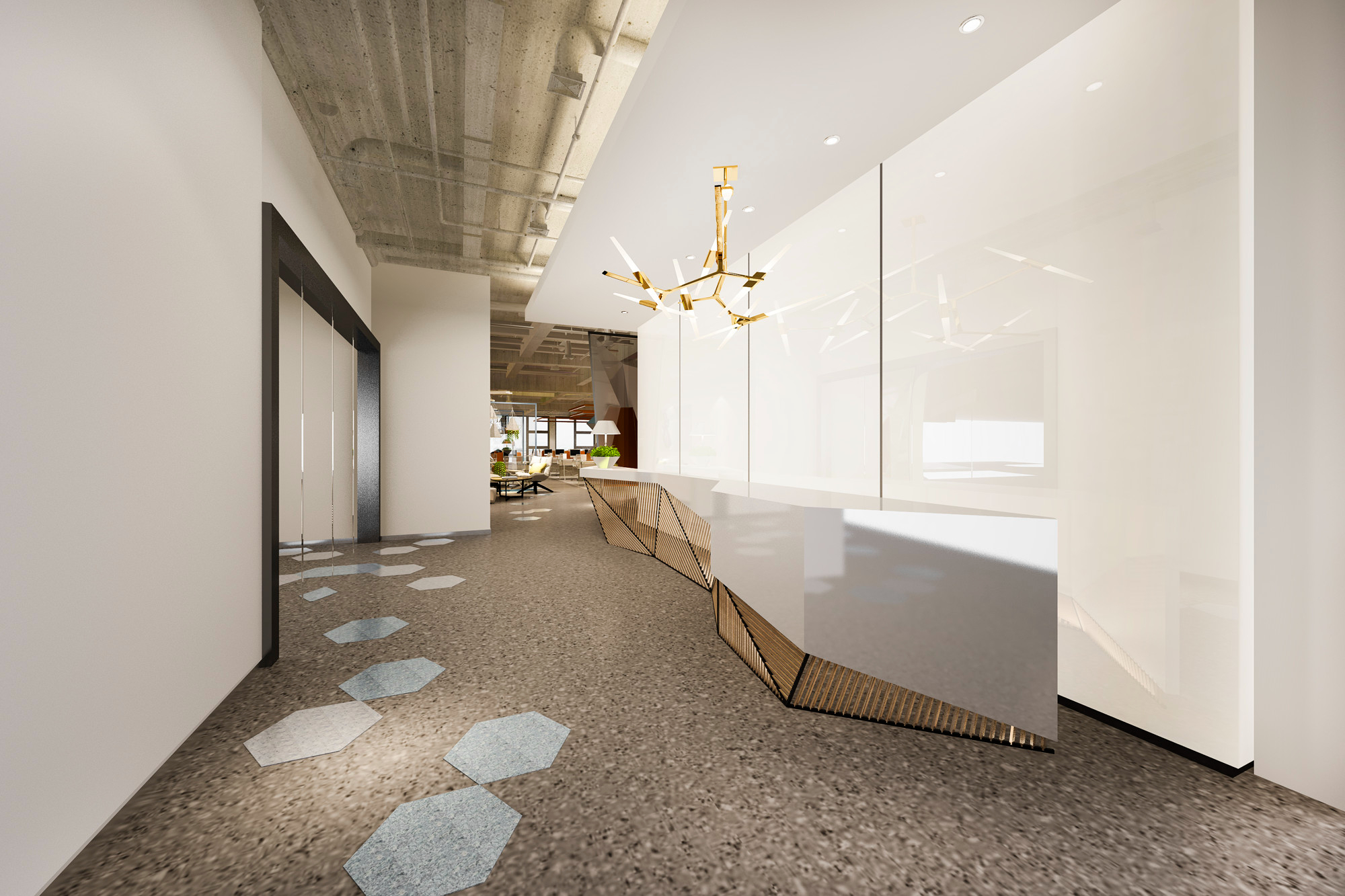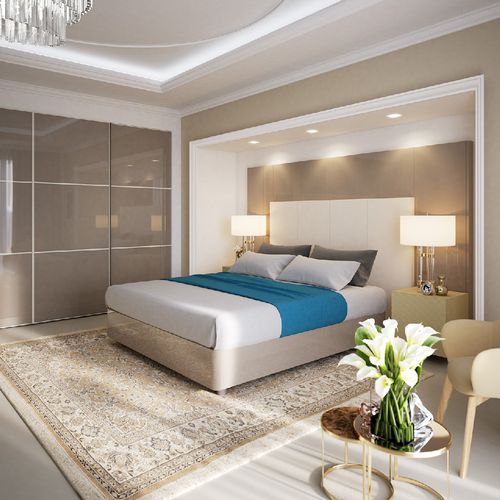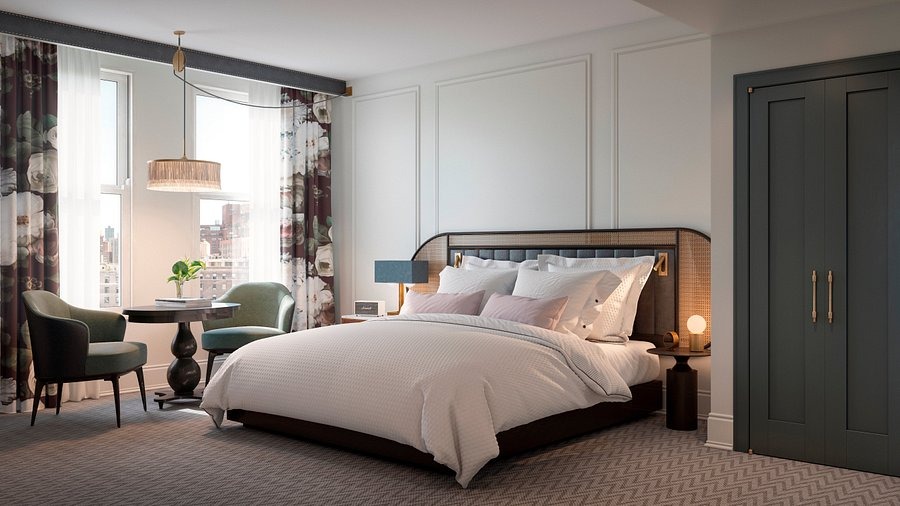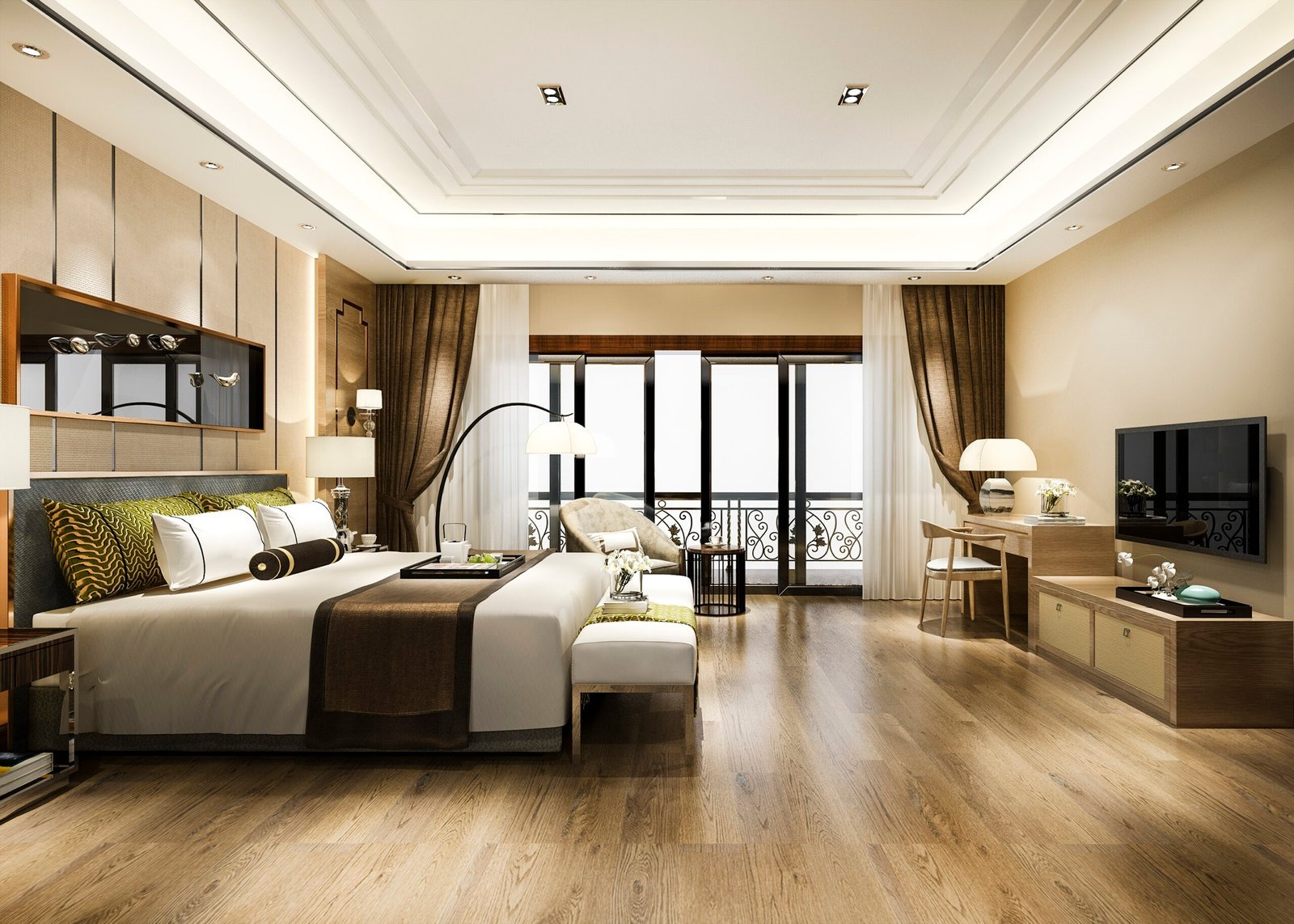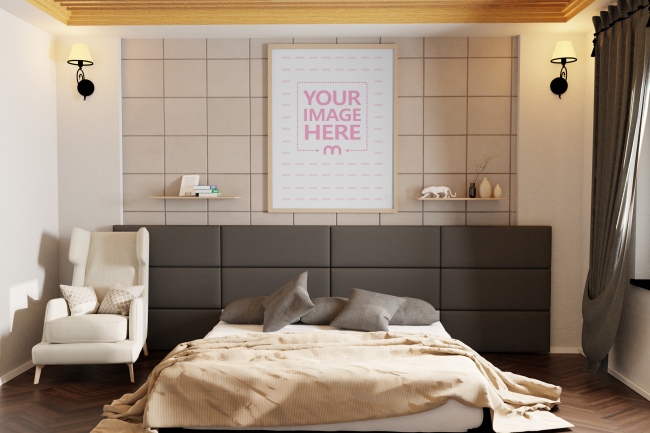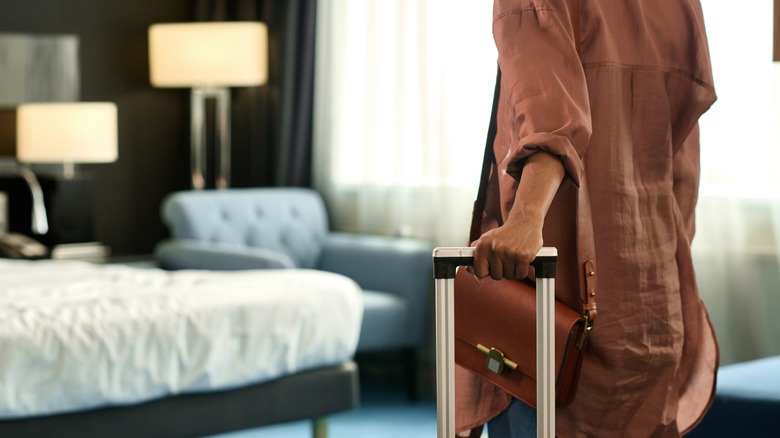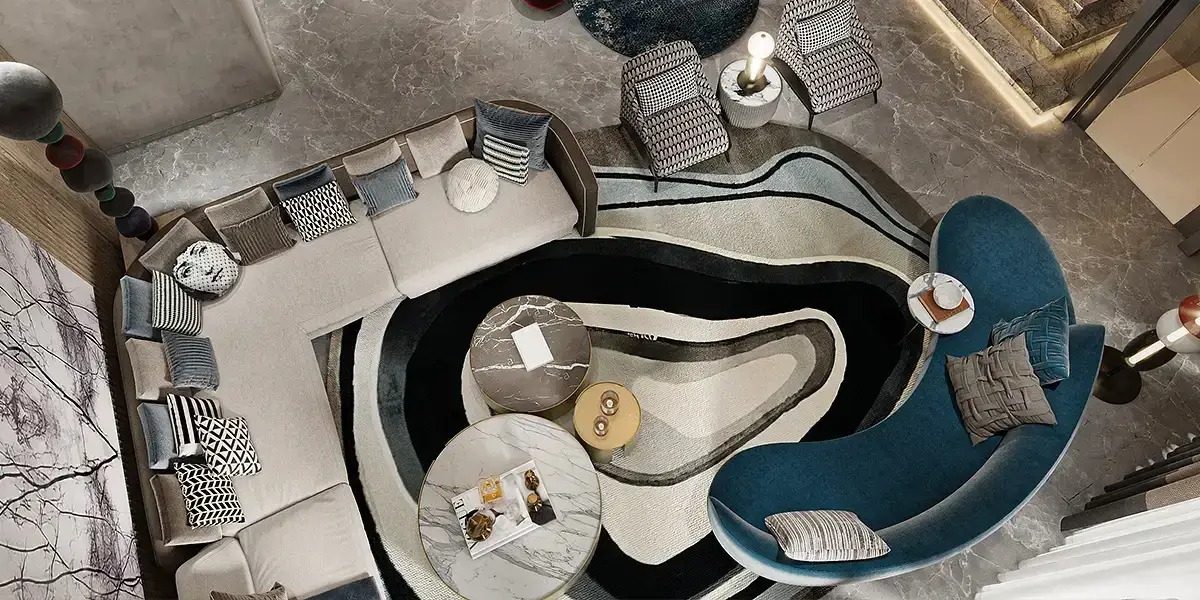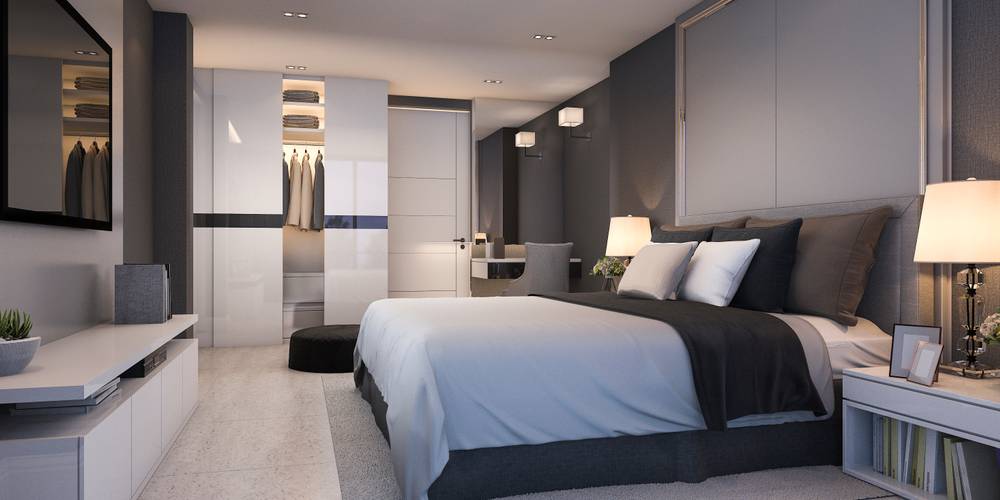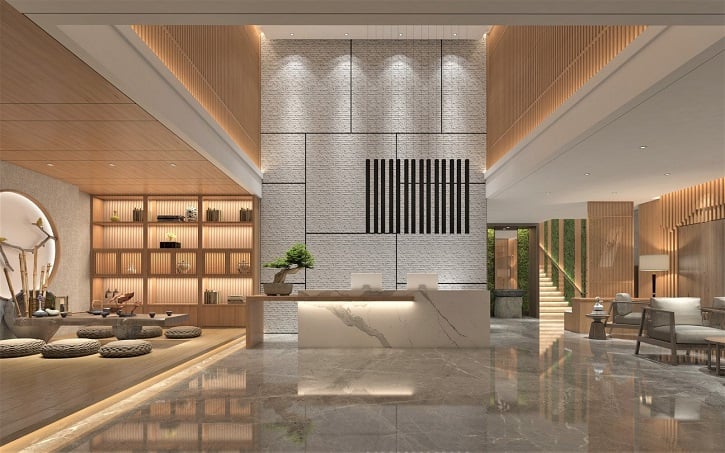Emerging Hotel Interior Material Trends in 2025
Thứ 2, 15/09/2025
Administrator
95
The hospitality industry constantly evolves, and interior materials play a defining role in shaping both aesthetics and functionality. In 2025, hotels are embracing innovative material trends that balance sustainability, durability, and guest experience. From eco-friendly alternatives to smart finishes, these materials not only improve visual appeal but also support long-term performance and environmental goals. Curious about which materials are redefining hotel interiors this year? Let’s explore together with Ngoc Hoang Anh in the article below.
1. Sustainable Wood Alternatives
Wood has always been a cornerstone of hotel interiors, but in 2025 sustainability is driving a shift toward eco-friendly alternatives. Instead of relying solely on traditional hardwood, hotels are adopting engineered products and certified timber to preserve forests while maintaining luxury aesthetics. These solutions combine durability, consistency, and environmental responsibility, making them ideal for large-scale hospitality projects.
1.1 FSC-Certified Timber
Hotels are increasingly choosing timber certified by the Forest Stewardship Council (FSC). This certification ensures the wood comes from responsibly managed forests that prioritize conservation and community welfare. In interiors, FSC-certified timber is commonly used for flooring, wall panels, and furniture. Guests appreciate both the natural warmth of wood and the reassurance that it has been ethically sourced.
1.2 Engineered Wood Panels
Engineered products such as plywood, MDF, and laminated boards are becoming essential in hotel design. These panels are manufactured to reduce warping, cracking, and inconsistencies often found in solid wood. For hoteliers, engineered wood allows for cost-efficient mass production of furniture and interior fittings, while designers benefit from a wide range of finishes that replicate the beauty of natural timber.
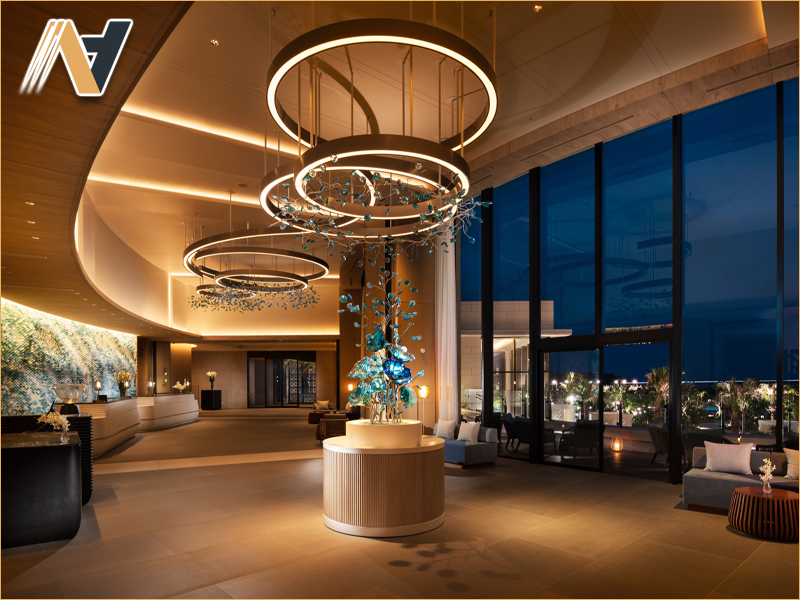
2. Stone and Composite Surfaces
Stone and composite materials continue to dominate hotel interiors in 2025 because of their durability, elegance, and versatility. These surfaces not only withstand heavy use but also create an atmosphere of sophistication. From grand lobbies to private bathrooms, stone and composite finishes allow hotels to blend timeless aesthetics with modern functionality, giving guests a sense of luxury that lasts.
2.1 Natural Stone Finishes
Natural stones such as marble, granite, and sandstone remain classic choices in hospitality design. Their unique veining and textures bring character and authenticity to spaces, making each installation one-of-a-kind. In 2025, lighter tones and honed finishes are especially popular, creating interiors that feel modern yet still luxurious. Hotels often use natural stone in lobbies, bathrooms, and spa areas to elevate the guest experience.
2.2 Quartz and Composite Materials
Quartz and other engineered composites have gained popularity as practical alternatives to natural stone. They provide the same refined look while offering greater stain resistance and easier maintenance, which is critical in high-traffic areas. Hotels often apply quartz on reception desks, bar counters, and bathroom vanities to combine elegance with long-term durability. With a wide variety of colors and patterns, composites allow for design flexibility without sacrificing performance.
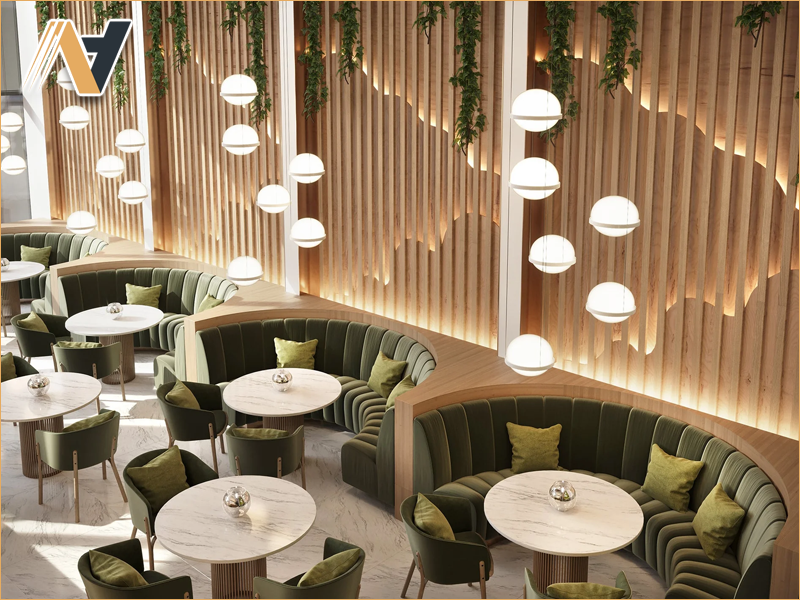
3. Eco-Friendly Fabrics and Textiles
Textiles are one of the most important elements in hotel interiors because they directly influence comfort, ambiance, and overall guest perception. In 2025, eco-friendly fabrics are emerging as a dominant trend, offering both sustainability and refined aesthetics. Hotels are turning to natural fibers and recycled materials to align with green practices while enhancing the tactile experience of guests.
-
Organic cotton and linen: breathable, natural, and free from harmful chemicals, making them ideal for bed linens, curtains, and draperies.
-
Recycled polyester blends: durable and stain-resistant, suitable for high-traffic upholstery such as lobby seating, lounge chairs, or banquet halls.
-
Bamboo fabrics: soft, renewable, and versatile, widely chosen for branding eco-conscious hotels and adding a fresh, modern touch.
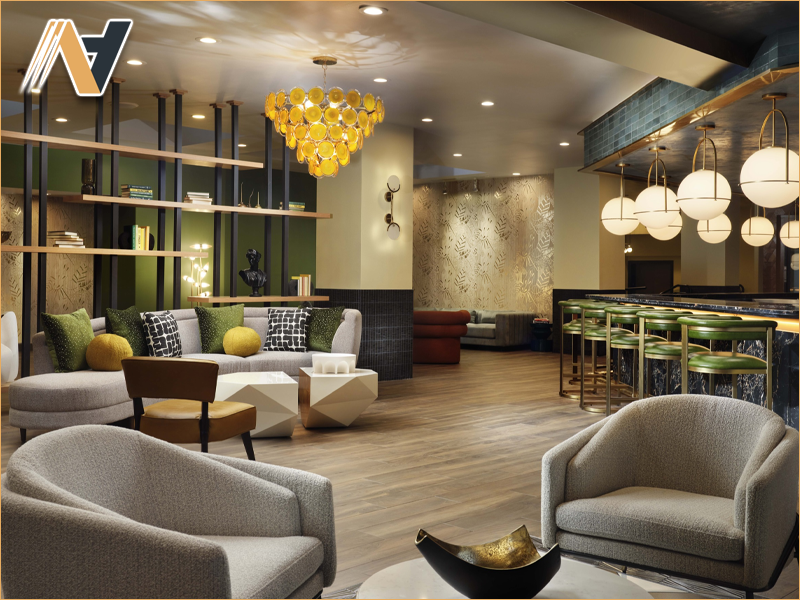
4. Innovative Surface Finishes
In 2025, hotel interiors are moving beyond traditional glossy coatings to embrace advanced finishes that combine style, functionality, and hygiene. These innovative treatments not only enhance visual appeal but also improve durability and guest safety. By integrating smart finishes into walls, furniture, and high-touch surfaces, hotels can reduce maintenance costs while meeting modern expectations for health and design sophistication.
4.1 Antimicrobial Coatings
Health and hygiene have become top priorities for both guests and hoteliers. Antimicrobial coatings are now widely applied to bathroom vanities, door handles, and elevator panels to reduce bacterial growth. By ensuring a safer environment, these coatings strengthen guest trust while reducing the need for constant deep cleaning in high-traffic areas.
4.2 Matte and Textured Finishes
Glossy surfaces are increasingly replaced with matte and textured finishes that provide a refined and contemporary aesthetic. These surfaces resist fingerprints, scratches, and visible wear, making them ideal for lobbies and guest rooms. The subtle elegance of matte tones also creates a calming atmosphere, aligning perfectly with modern hospitality design.
4.3 Scratch-Resistant Laminates
Durability is essential in hotel interiors where furniture and surfaces face constant use. Scratch-resistant laminates are gaining popularity for wardrobes, desks, and common area furnishings. They combine practicality with design flexibility, offering a wide range of colors and patterns while reducing long-term maintenance costs.
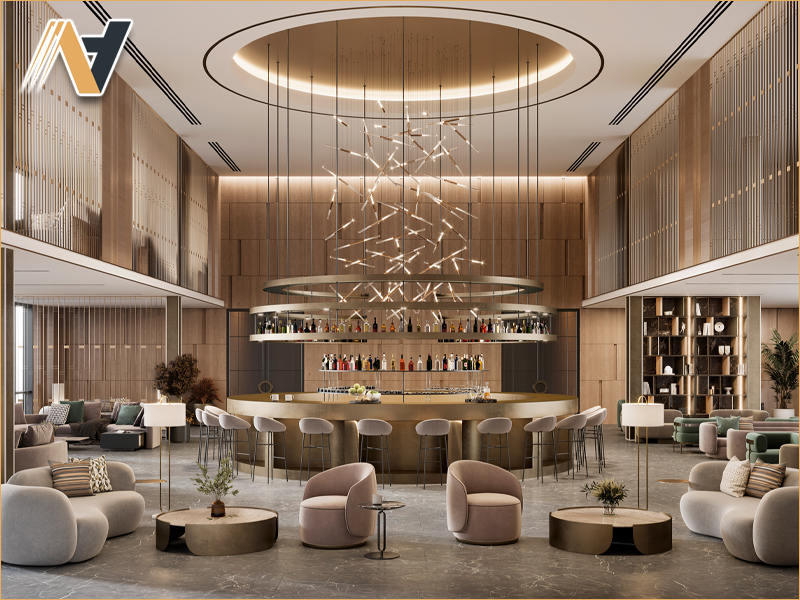
5. Glass and Metal Accents
Glass and metal are no longer just decorative touches; in 2025, they play a strategic role in shaping modern hotel interiors. These materials combine transparency, strength, and elegance, allowing designers to create spaces that feel open, luxurious, and innovative. By using them thoughtfully, hotels can balance practicality with style, reinforcing their brand identity while delivering memorable guest experiences.
5.1 Tempered Glass Partitions
Tempered glass is widely used for partitions in guest rooms, restaurants, and meeting areas. Its strength ensures safety, while its transparency maintains openness and light flow. Frosted or tinted variations provide privacy without sacrificing the modern aesthetic, making glass partitions a versatile solution for diverse hospitality needs.
5.2 Bronze and Brass Accents
Warm metallic tones like bronze and brass are becoming increasingly popular in hotel design. They appear in light fixtures, door handles, decorative trims, and even furniture legs, adding a sense of luxury without overwhelming the overall space. These accents reflect sophistication and are particularly effective in creating focal points in lobbies or suites.
5.3 Recycled Aluminum Panels
Sustainability has also influenced the choice of metals. Recycled aluminum panels are lightweight, durable, and eco-friendly, making them ideal for wall cladding, ceilings, and decorative screens. Their flexibility allows for creative designs while supporting hotels in meeting green building standards. By choosing recycled aluminum, hotels can enhance aesthetics and reduce their carbon footprint simultaneously.
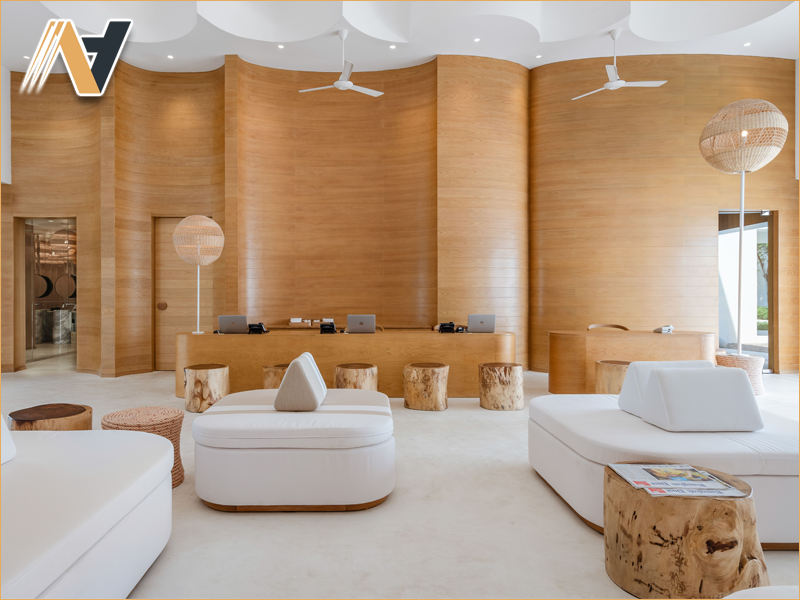
6. Conclusion
The material trends shaping hotel interiors in 2025 emphasize sustainability, durability, and innovation. From eco-certified timber to recycled textiles and advanced finishes, hotels are aligning design choices with both guest expectations and global environmental goals. As a trusted manufacturer in Vietnam, Ngoc Hoang Anh provides Vietnam hotel furniture OEM, delivering professional production solutions tailored to the unique needs of hospitality projects.
Contact us today for expert consultation and premium manufacturing support for your hotel interiors.
-----
NGOC HOANG ANH TRADING COMPANY LIMITED
Tax Code: 3702874413
Address: No. 288/28/10 Huynh Van Luy Street, Zone 7, Phu Loi Ward, Ho Chi Minh City, Vietnam
Warehouse: No. 1/91, Thuan Giao 02 Street, Binh Thuan 2 Residential Quarter, Thuan Giao Ward, Ho Chi Minh City, Vietnam
Phone/Whatsapp/Wechat: +84342076666
Email: info@ngochoanganh.com.vn

